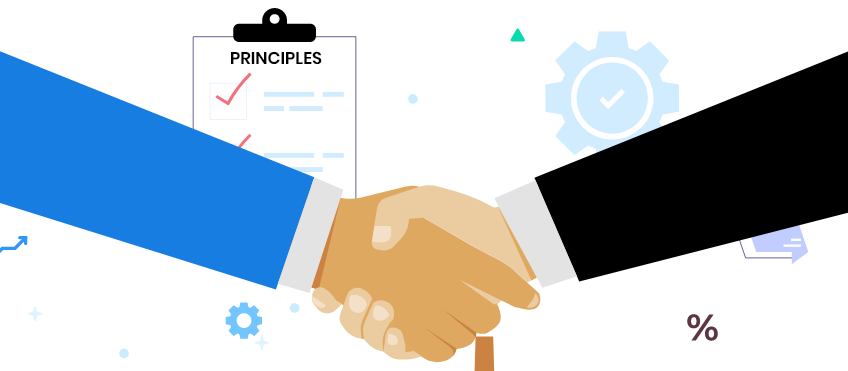Customising GPT for Businesses: Harnessing Tailored AI for Enhanced Operations

Customising GPT for Businesses: Harnessing Tailored AI for Enhanced Operations
Introduction
In the rapidly evolving landscape of artificial intelligence, businesses are continuously seeking innovative ways to stay ahead. One transformative development in this realm is the customisation of Generative Pre-trained Transformers (GPT) for specific business applications. OpenAI’s foray into customizable GPT models marks a significant shift in how businesses can leverage AI, providing a unique blend of flexibility, efficiency, and precision.
Key Takeaways:
- Custom GPT models offer unprecedented adaptability for various business needs.
- The GPT Store by OpenAI opens avenues for monetization and wider access.
- Case studies demonstrate the tangible benefits of customizing GPT-3 for different sectors.
The Rise of Customizable GPT Models
OpenAI recently revolutionized the conversational AI system landscape by introducing customizable GPT models, aptly named GPTs. This initiative allows individuals and businesses to create their own versions of GPT for diverse purposes, ranging from simple personal use to complex business applications.
Interestingly, creating a GPT requires no coding experience, offering simplicity and accessibility to users across various domains. For instance, a business could create a GPT trained on proprietary code, enabling more efficient code generation and style checking, while another might develop a GPT for customer service, enhancing interaction quality.
Moreover, OpenAI has made it possible to create a GPT just through conversation with ChatGPT. This user-friendly approach allows businesses to easily tailor the AI’s behavior to their specific needs, making the technology highly accessible and adaptable.
The GPT Store: A New Marketplace for Customized AI
One of the most impactful developments from OpenAI is the GPT Store, a platform where these custom GPTs will be distributed and, in due course, monetized. This model, reminiscent of Apple’s App Store, offers creators the opportunity to have their GPTs discovered and used widely, potentially generating revenue in the process. OpenAI’s decision to create its own platform for GPT distribution marks a significant step towards establishing independence in the AI marketplace.
Prominent examples of GPT applications demonstrated by OpenAI include those built by Code.org, TripAdvisor, and Canva, indicating the platform’s potential for both large-scale and individual innovative applications.
Advantages of Customizing GPT for Specific Business Needs
Customizing GPT presents significant advantages, particularly in terms of reliability and efficiency. Businesses have found that tailoring GPT to their specific needs not only improves the accuracy of outputs but also reduces costs and enhances speed. This customization process is straightforward, involving a single command in the OpenAI command line tool with a provided file, after which the custom version becomes immediately available via OpenAI’s API.
The benefits of this customization are evident across various sectors. For example, Keeper Tax has leveraged custom GPT to improve tax filing services for freelancers, achieving a significant increase in accuracy. Similarly, Viable has used it to transform customer feedback into actionable reports, enhancing their service delivery. In the realm of education, Sana Labs has seen a 60% improvement in its AI-driven learning platform’s effectiveness by customizing GPT.
Customising GPT for Businesses: Maximizing AI Impact in Business
Building on the foundation laid in Part 1, we delve into the practical applications and benefits of customized GPT models in business environments. From enhancing customer experiences to improving operational efficiency, the scope of GPT’s impact is vast and varied.
Implementing GPT in Business Strategy
In the ever-competitive business world, staying ahead often means embracing innovative technologies. GPT, with its advanced AI capabilities, plays a pivotal role in data-driven decision-making, offering insights that are both profound and actionable. For example, predictive analytics, a key aspect of modern business strategy, can be significantly enhanced using GPT. It aids in forecasting customer behaviors, managing inventories, and even developing credit risk models.
Enhancing Customer Experience and Marketing with GPT
At the heart of any successful business lies a satisfied customer base. Customizing GPT to improve customer service and support can set a company apart from its competition. GPT’s ability to generate human-like responses in customer interactions enhances overall customer experience.
Moreover, personalization, a crucial element in marketing, sees a new dimension with GPT. From tailoring product recommendations to creating dynamic FAQ pages, GPT enables a level of customization that resonates with individual consumer preferences.
Boosting Operational Efficiency and Collaboration
Operational agility and efficiency are key to maintaining a competitive edge. GPT supports these objectives by enabling businesses to quickly adapt to market changes and consumer trends. It also plays a significant role in enhancing team collaboration, especially in global organizations where it helps bridge language and geographic barriers.
Furthermore, optimizing operations through AI and GPT leads to cost-effective business processes, streamlined through automation and reduced reliance on manual labor.
Conclusion
The customization of GPT for business applications opens a world of possibilities. From revolutionizing customer interactions to streamlining operations and enhancing decision-making processes, the impact of GPT in the business world is both transformative and far-reaching.
Stay ahead of the curve by embracing the potential of custom GPT models in your business strategy.
FAQs
Q1: How does customizing GPT improve business operations? Customizing GPT tailors its capabilities to specific business contexts, leading to more accurate and efficient operations.
Q2: What are some unique applications of customized GPT models in different industries? Customized GPT models can be used in areas such as coding, customer service, tax filing, and educational content generation.
Q3: Can small businesses benefit from customizing GPT models? Absolutely. The adaptability of GPT models means that businesses of any size can harness their potential for various applications.
Q1: How can GPT aid in risk management and decision-making? GPT enhances risk management by predicting potential risks and analyzing their impacts, thereby aiding in informed decision-making.
Q2: What are the implications of GPT for employee training and development? GPT can be used to create personalized training materials and interactive exercises, thereby addressing skill gaps and facilitating effective upskilling.
Q3: How can GPT strengthen a company’s cybersecurity program? GPT’s capabilities in threat detection and analysis bolster a company’s cybersecurity, ensuring better preparedness and response to potential threats.










